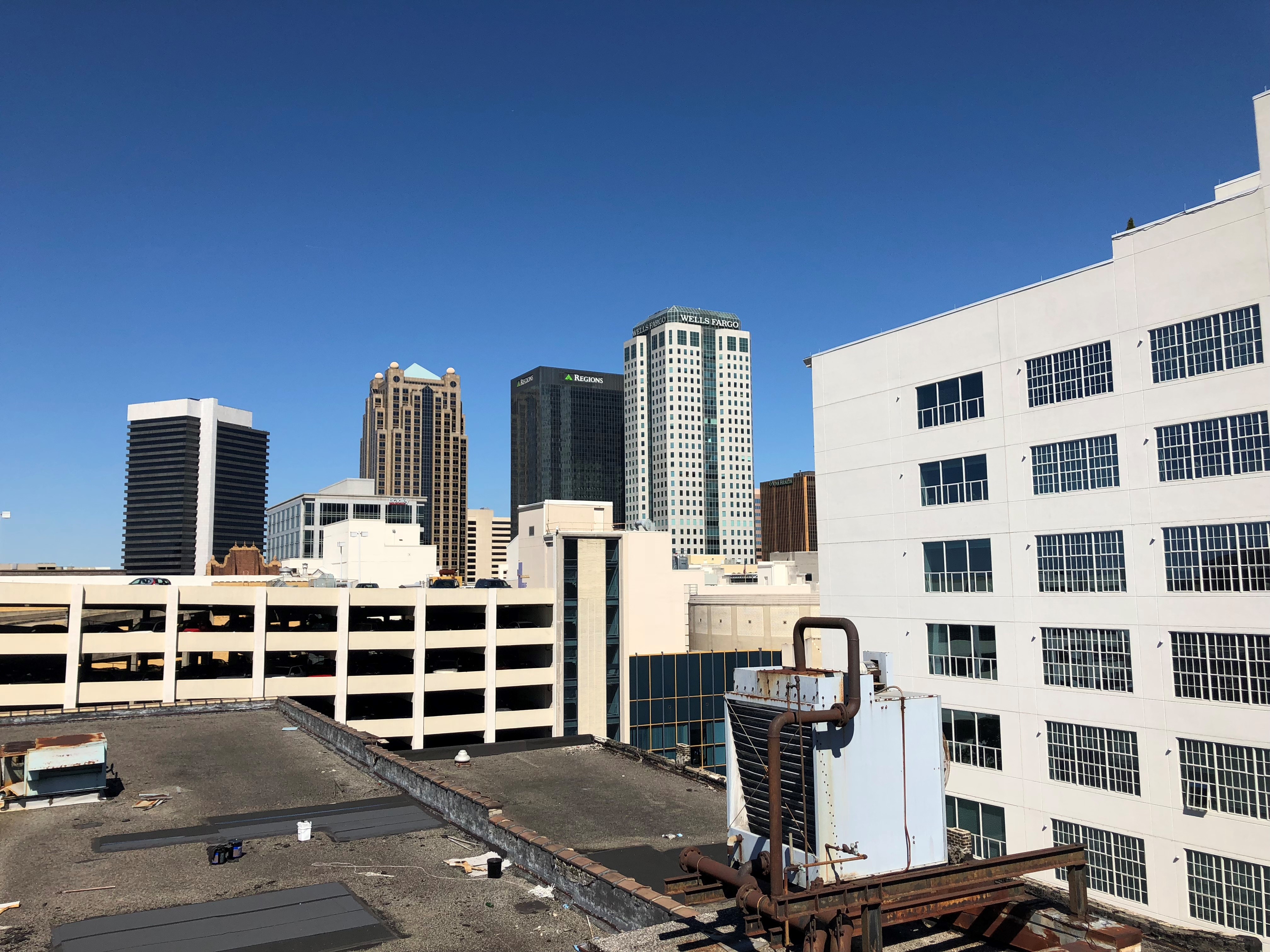Samford history professor Erin Mauldin discussed Birmingham’s environmental racism and ways the city’s pollution targets minority communities at the 15th annual Martin Luther King Jr. Memorial Lecture. Mauldin spoke at the Avondale Regional Branch Library on Sunday Feb. 25, 2018.
Besides Birmingham, Homewood’s pollution also continues. According to the Environmental Protection Agency’s Toxic Release Inventory, Mayfield Dairy Farms released 8,000 pounds of ammonia into Homewood’s air in 2016. Homewood’s water contained 15 pounds of lead and antimony. Birmingham’s pollution levels are even higher.
Mauldin said polluting contaminates soil, water and homes. Even though these levels have decreased, Mauldin said they’re still too high.
“There are several carcinogens still being released in the thousands of pounds into the air. Over time, it affects citizen’s health and their neighborhood’s health,” she said.
For example, Mauldin said sulfur dioxide causes respiratory diseases and damage humans’ nerves. It also interferes with children’s development rates.
“You ask anyone in Birmingham and they have a story. Even with federal pollution laws it has taken 40 years for this to become part of the public dialogue,” she said.
Mauldin said other chemicals could cause birth defects and brain cancer. Mauldin said infant mortality rates rise 8 percent if steel production increases 1 percent. Suffering will continue because these chemicals spread to children.
“Anything the mother is exposed to while the baby is in utero will show up in the child,” she said.
Even small operations such as waste transfer centers harm health. Mauldin said a thousand trucks drive through one waste transfer center.
“We know cyclists who bike in urban areas next to traffic have higher rates of respiratory diseases,” she said.
Even though pollution is widespread, Mauldin said African, Native, Hispanic and poor Americans suffer more due to environmental racism.
According to a 2018 American Journal of Public Health report, America’s poor are 1.35 times more likely to be exposed to toxic particles.
However, Mauldin said race also correlates with exposure. Mauldin said African-Americans are 1.64 times more likely to be exposed to these particles. Minority communities are disproportionately closer to air pollution, landfills, incinerators and toxic waste dumps.
Besides proximity, Mauldin said race influences the EPA’s cleaning operations. Minorities’ neighborhoods remain contaminated approximately 12-42 percent longer.
Mauldin said the EPA prioritizes white communities, and penalties are 500 percent higher in these communities.
“White communities see faster action, better results and stiffer penalties,” she said
Mauldin said zoning also prevents minorities from escaping pollution. It preserves the racial zoning ordinances established by 1926 Jim Crow laws. These ordinances targeted black neighborhoods for future industrial use.
“Thus, ensuring if they weren’t polluted in the 1920s, they were going to be later. Zoning is thought to be this color-blind gatekeeper, but it’s an overlooked cause of environmental injustice,” she said.
Besides zoning, Mauldin said pollution will intensify due to the Trump administration deregulating industries.
“Momentum for correcting these issues has been forced from the federal level to the state level,” she said. “Alabama hasn’t historically regulated pollution. That’s doubly true now because there’s no pressure from the federal government.”
Despite pollution, Mauldin said most African-Americans can treat their diseases. However, the poor and undocumented immigrants struggle accessing healthcare.
Due to immigrants’ work, Mauldin said they ingest pesticides and have higher rates of cancer and respiratory diseases.
Mauldin said undocumented immigrants also risk harassment and deportation when they seek treatment. Consequently, Mauldin said these groups’ illnesses worsen.
“It creates a common fear and uncorrected burdens. They’re forced to go to the emergency room for problems that need long-term care,” she said.
Samford alumna and DACA receipt Fernanda Herrera-Vera said she avoided the hospital even after suffering a car accident in September 2017. Her parents are undocumented immigrants.
Even with a broken pelvis and cuts, Herrera-Vera said she avoided the hospital. The bills scared her because her family lacks health insurance. However, witnesses called an ambulance.
“Even though my Samford family and friends donated, I will be paying that off for the rest of my life,” she said.
Besides hospitals, Herrera-Vera said she also fears harassment and deportation. Both her parents are harassed.
While grocery shopping, customers demanded Herrera-Vera’s father speak English.
Herrera-Vera said a police officer ticketed her mother every time she drove into town after discovering she was an undocumented immigrant. Herrera-Vera’s parents don’t have driver licences. The police officer then started towing the car.
Consequently, Herrera-Vera said they now avoid that area. Herrera-Vera’s mother couldn’t work or buy groceries and it added 20 minutes to her mother’s commute.
“The police officer was intentionally stopping her for no reason. We paid thousands of dollars to retrieve the car,” she said.
Due to these experiences, Herrera-Vera said she wakes up everyday with fear. She calls her parents throughout the day.
Even on holidays, Herrera-Vera said she’s afraid.
“How am I supposed to look at my parents on Christmas and tell them they might be deported tomorrow?” she said.
Without her parents, Herrera-Vera said she would have to raise her 15 year-old brother. He’s an American citizen. Herrera-Vera said this would have forced her to leave Samford.
“That’s a big burden to have as a college student and raise your siblings because your parents were ripped away from your home,” she said.
Herrera-Vera said she already lost her grandmother.
Due to her undocumented status, Herrera-Vera said she and her grandmother were seperated for nine years. Her grandmother lived in Mexico.
Before reuniting, Herrera-Vera said her grandmother died her senior year at Samford.
“My mom and I weren’t able to tell her goodbye. I called her every single day, but we weren’t able to see her,” she said.
Herrera-Vera said she feels like a second-class human being because she pays taxes but can’t vote.
Mauldin said all these injustices will require different solutions. In the meantime, Herrera-Vera said many Americans are fighting for her.
“When one group wins in civil rights, all groups win in civil rights,” she said.
William Marlow, News Editor






